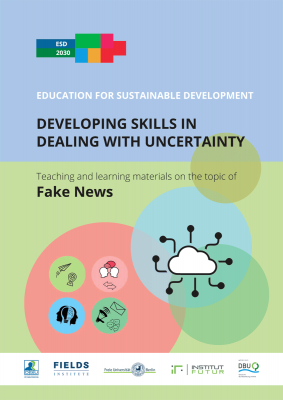
Fake News in the Discourse on Biodiversity
In an increasingly complex world, it has become more diffi cult and time-consuming to distinguish between misinformation and true information. Some pieces of knowledge cannot be understood or verified down to the last detail, so we have to rely on experts (e.g. doctors, scientists).
However, information on the internet is also wrong in many cases. Checking sources is timeconsuming and something people simply don‘t do in everyday life. At the same time, asking experts for advice is not always possible. Who do we trust and based on what criteria?
The pupils explore the topic of fake news in relation to colony collapse disorder. How are these topics interrelated? Some honeybee populations in the USA died mysteriously in 2006. To this day, there is still no consensus as to what caused it. This phenomenon is called Colony Collapse Disorder (CCD).
The corresponding term „Bienensterben“ (literally „bee mortality“) was coined in Germany. This term is misleading as it suggests that all bee species are on the brink of extinction. However, this is not really true. Often, no distinction is made between honeybees and wild bees. Regional differences also need to be taken into account. The term „colony collapse disorder“ is often emotionalised by the media or co-opted by political parties or Environmental Protection Organisations to achieve their own goals. As a result, bees are often seen as a poster child, thus they raise awareness around the problems relating to our environment in society. This is not objectionable in and of itself, but when the problem is stripped of its nuances, this also provides a breeding ground for misinformation and disinformation. In addition, the complexity and impact of declining insect populations on our environment is receding into the background. Therefore, it is worth taking a nuanced look at this topic, and the topic of fake news in general.
 You can download all the materials on this topic in one PDF here:
You can download all the materials on this topic in one PDF here:
